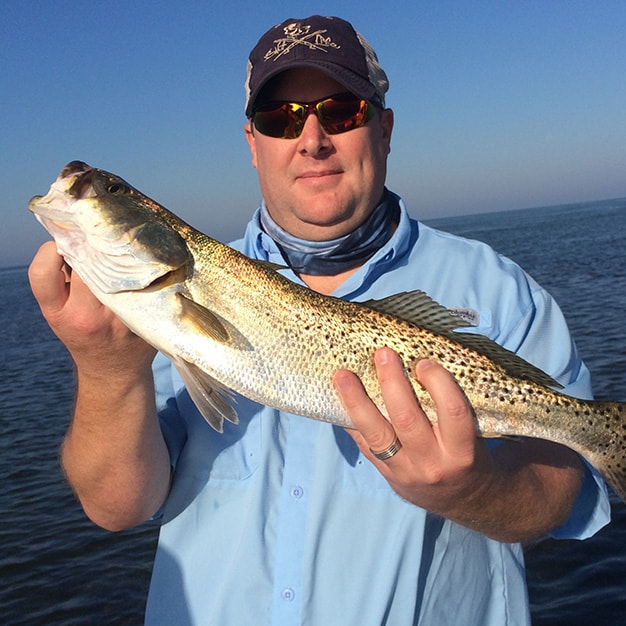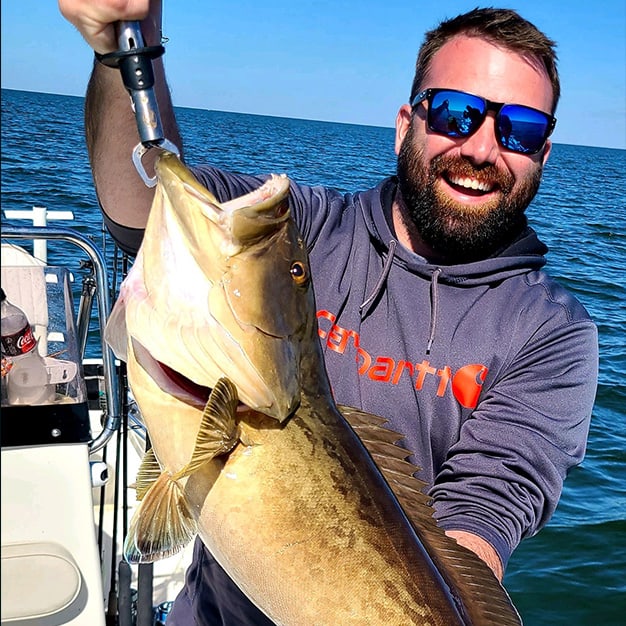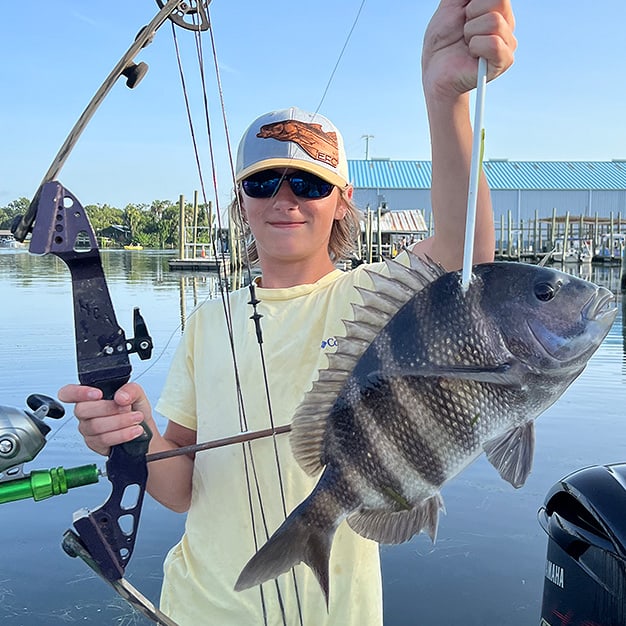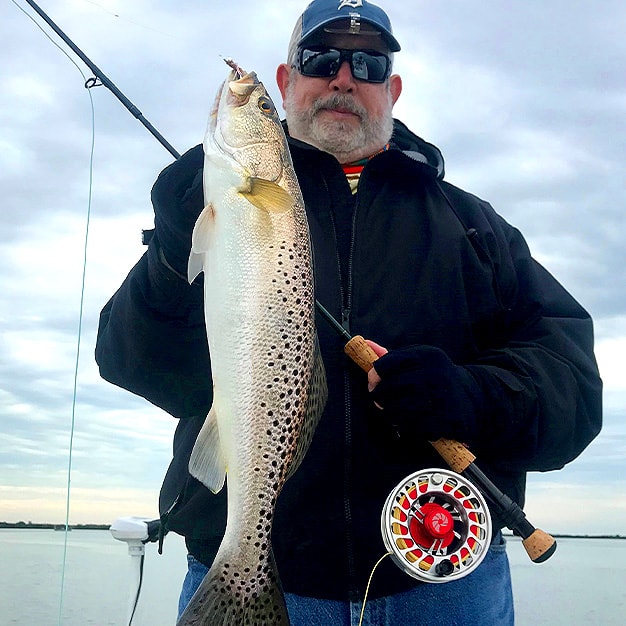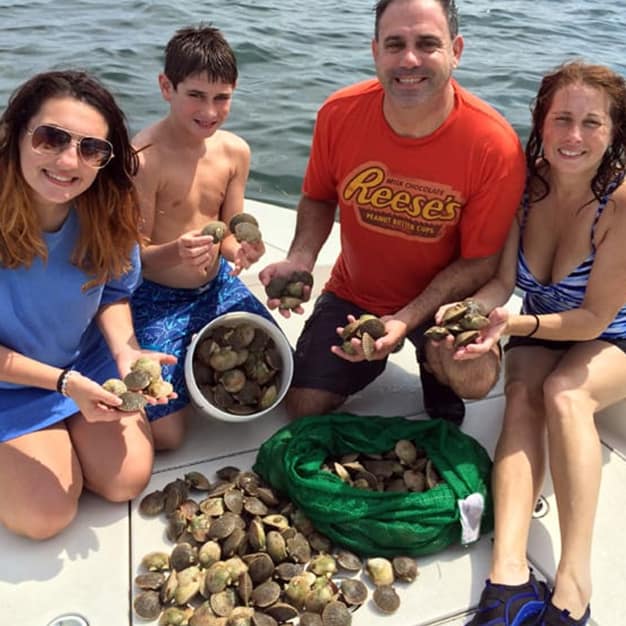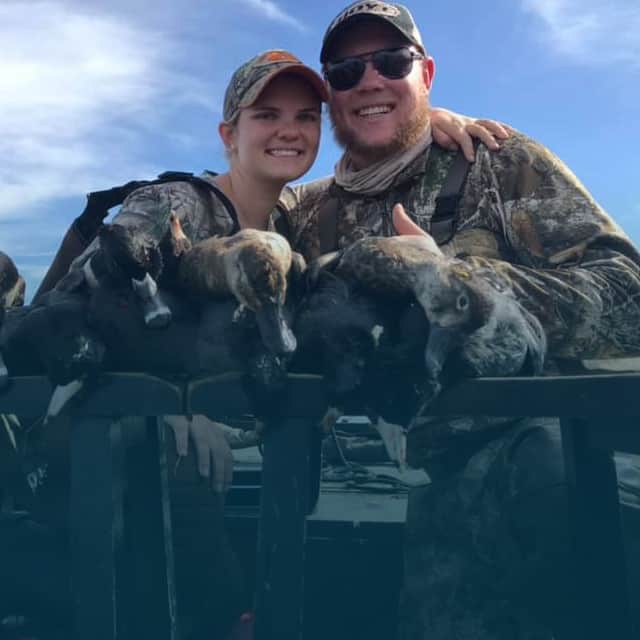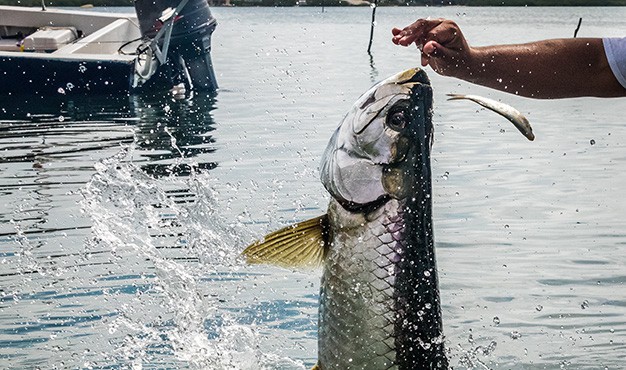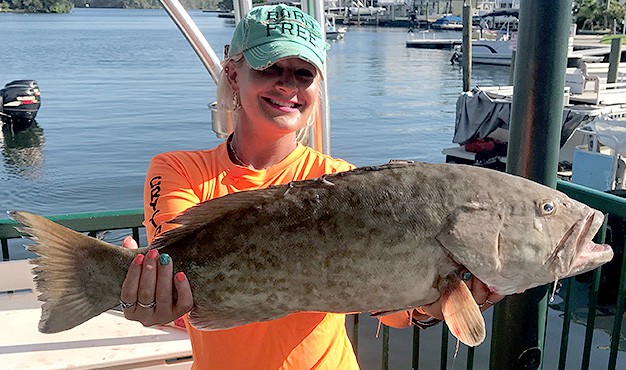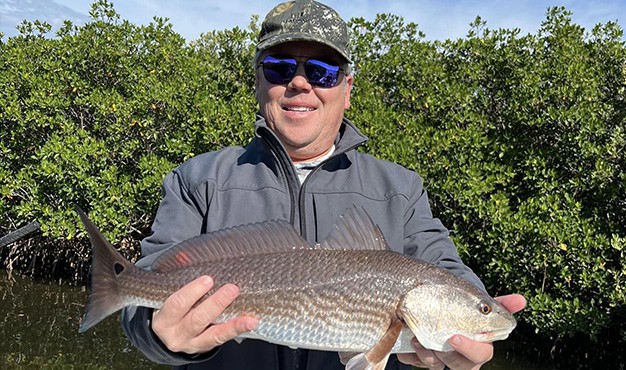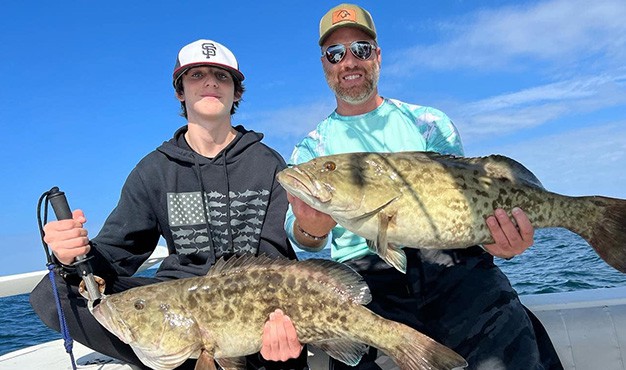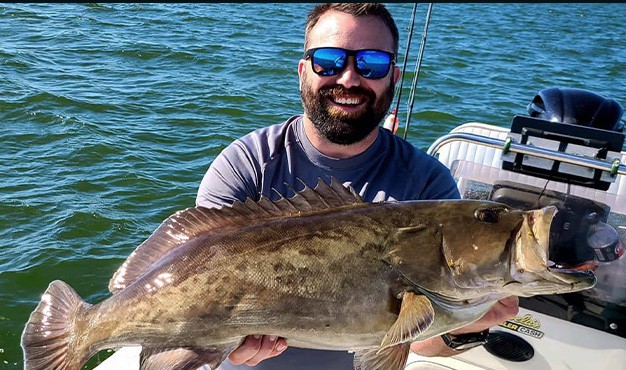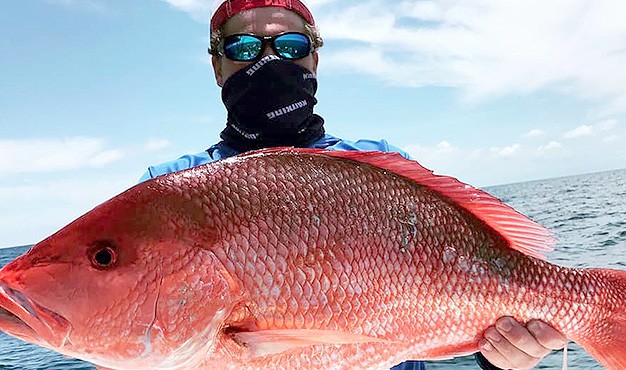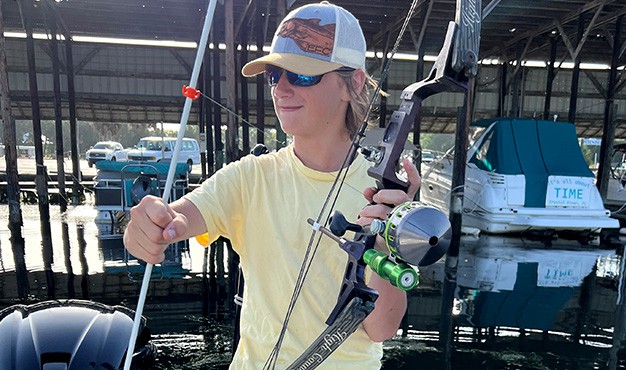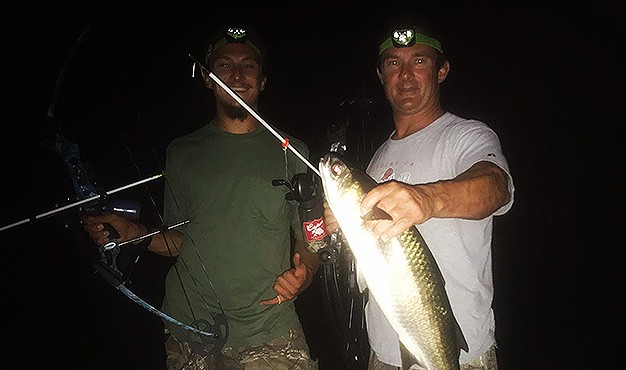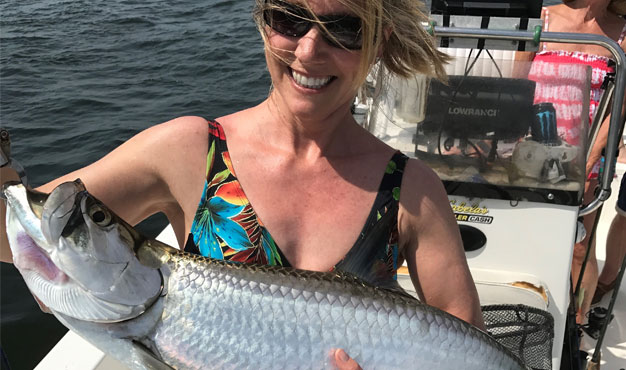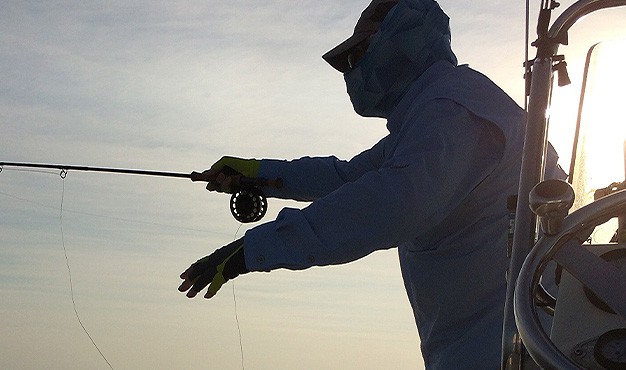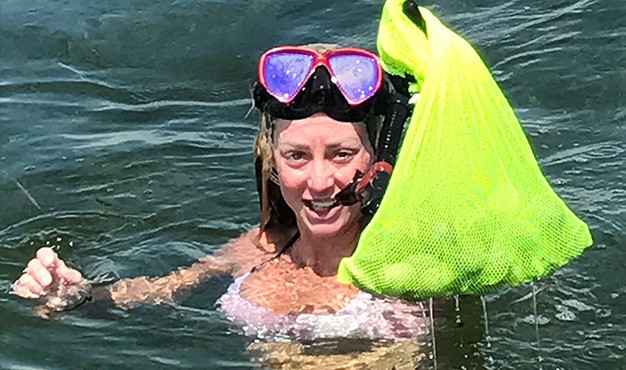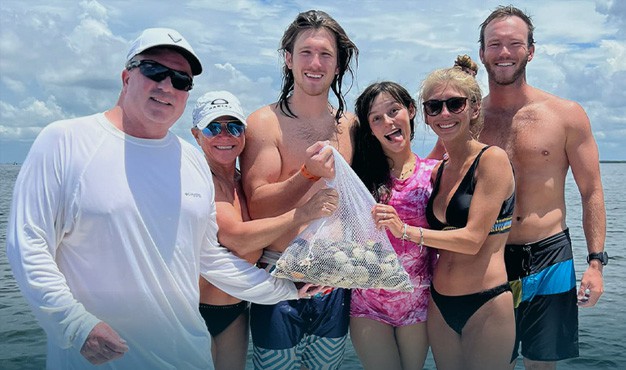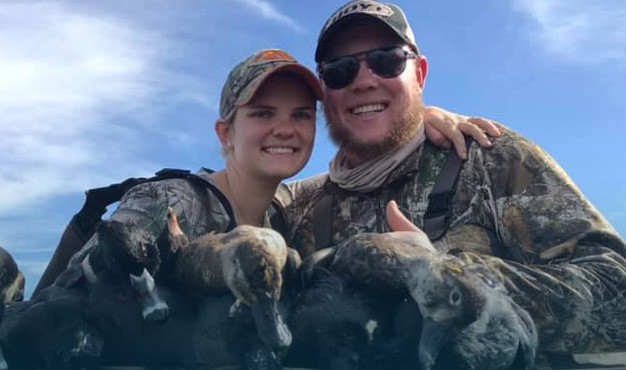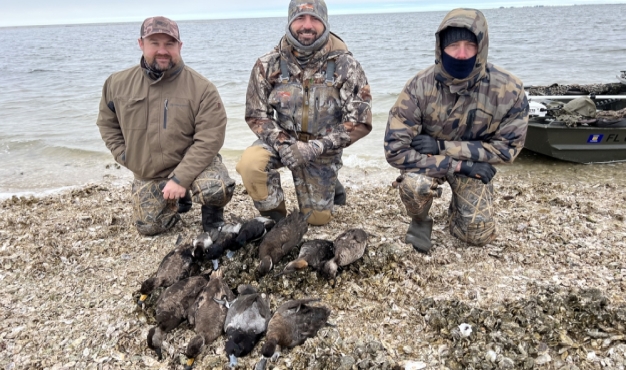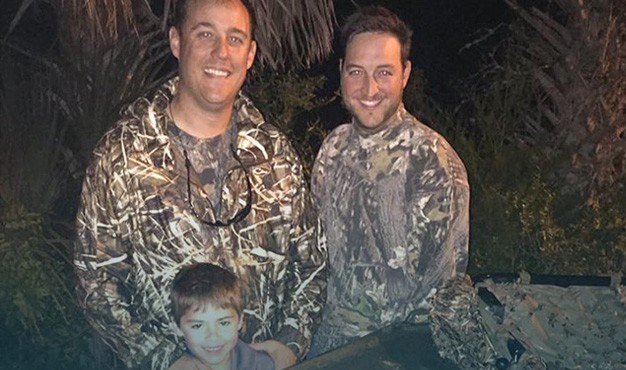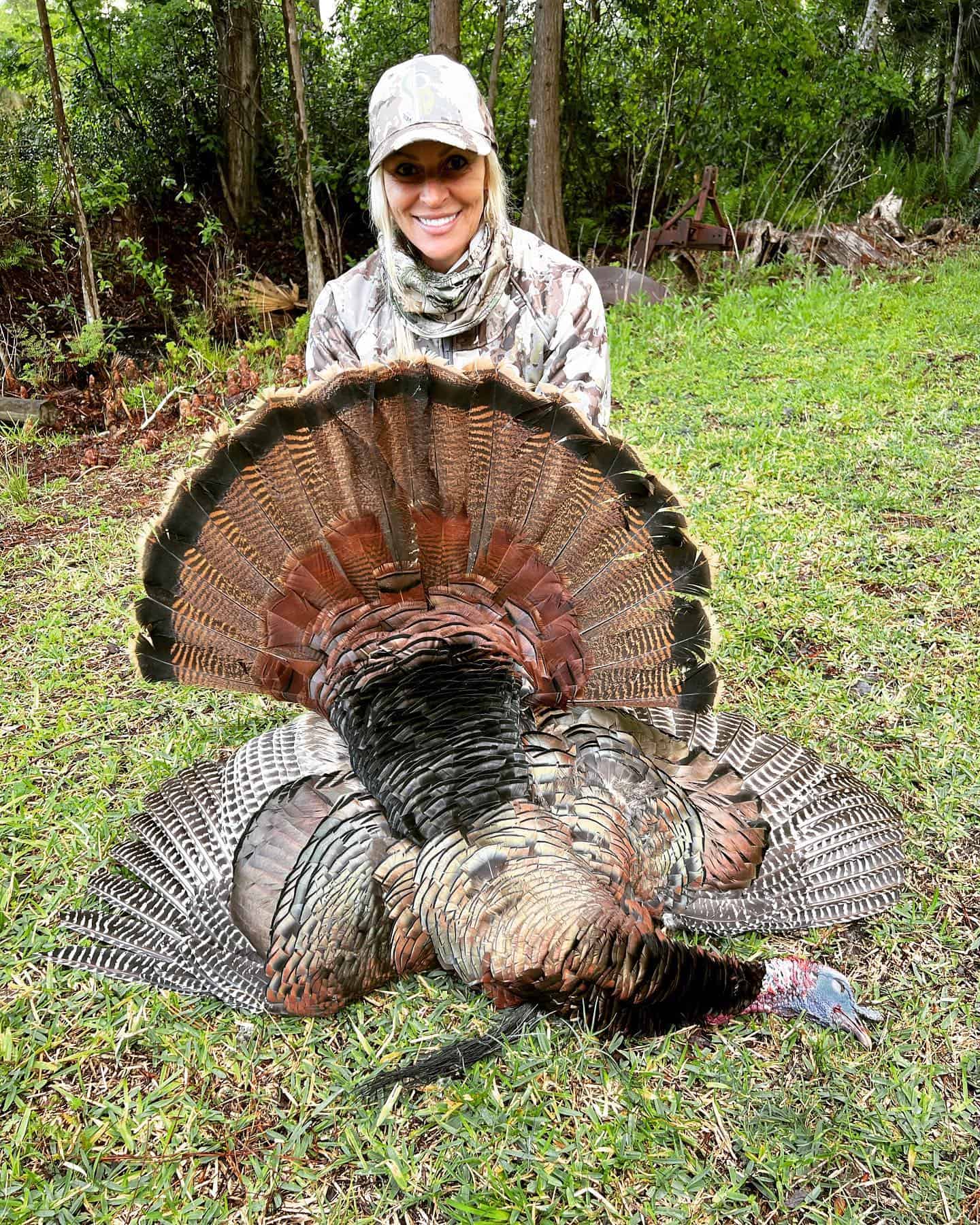
Florida turkey hunting offers a unique experience, full of excitement, challenge, and the opportunity to immerse yourself in the Sunshine State’s diverse habitats. Whether you’re seeking your first Osceola turkey or adding a Merriam to complete your Grand Slam, proper preparation is key to a successful hunt. With the right planning, gear, and strategy, you can maximize your chances of bagging that elusive gobbler.
At Salt River Outfitters in Crystal River, FL, we’ve helped countless hunters achieve success in the field. This ultimate checklist covers everything you need to know before heading out, from essential gear and scouting tips to hunting tactics and post-hunt procedures. Ley’s get you ready for an unforgettable Florida turkey hunt!
Why is Florida a Good Turkey Hunting Destination?
Florida is home to two types of wild turkey: the Osceola and the Eastern turkey. The Osceola, also known as the Florida wild turkey, is unique to the state and highly prized by hunters for its striking appearance and limited range. The opportunity to hunt Osceola turkeys draws hunters from all over the country, eager to complete their Grand Slam or simply enjoy the thrill of pursuing these elusive birds in their natural habitat.
The state’s varied terrain – including pine flatwoods, oak hammocks, swamps, and fields – provides an excellent environment for turkey hunting. These areas offer plenty of food sources and cover, creating ideal conditions for turkey populations to thrive. The mix of landscapes and the challenging nature of Florida’s turkeys make for a rewarding hunting experience.
When to Plan Your Florida Turkey Hunt
Timing is critical when it comes to turkey hunting in Florida. The state has specific hunting seasons for spring and fall, but the spring season is by far the most popular. This period coincides with the turkey’s breeding season, which makes them more active and vocal. During the spring, the turkeys are looking to establish their dominance and attract hens, making them more responsive to calls.
Spring turkey season typically runs from early March through late April, but exact dates vary by region. Fall hunting is available in some areas from September through November, although it is less common. Fall turkeys are quieter and less predictable, which can present a different set of challenges. Always check the Florida Fish and Wildlife Conservation Commission (FWC) website for up-to-date information on hunting dates, regulations, and zone-specific guidelines.
Essential Gear for a Florida Turkey Hunt
To make the most of your turkey hunting experience in Florida, you need to be well-prepared with the right gear. Here is a detailed look at the equipment you’ll need:
Clothing and Footwear
Camouflage is essential for turkey hunting, as these birds have keen eyesight and are easily spooked by unnatural movements or colors. Choose full camo attire, including a face mask and gloves, to blend into the natural environment. Since Florida is known for its warm and humid climate, opt for lightweight, breathable clothing that will keep you comfortable throughout the day. Waterproof boots are also a good choice, as Florida’s terrain can vary from dry fields to swampy areas.
Shotgun and Ammunition
A reliable shotgun is at the heart of your hunting setup. Most hunters prefer a 12- or 20-gauge shotgun equipped with a turkey choke to ensure a tight shot pattern. Pair this with high-quality turkey loads designed for maximum knockdown power at various ranges. Spend time practicing your shots before the hunt to become familiar with your gun’s performance and limitations.
Turkey Calls
Turkey Calls are essential for attracting gobblers. Box calls, slate calls, and diaphragm calls each have their advantages, so consider carrying a variety to cover different situations. Box calls are easy to use and produce loud, distinct sounds, making them great for beginners. Slate calls allow for more nuanced tones, while diaphragm calls are compact and versatile.
Turkey Decoys
Decoys are useful for drawing in curious or competitive toms. A combination of hen and jake decoys can be particularly effective during the spring season, as toms are looking to establish dominance. Position your decoys strategically to encourage turkeys to approach within shooting range.
Miscellaneous Gear
Addition gear to include in your hunting kit:
- A turkey vest to carry calls, ammunition, and any gear you need at hand.
- Binoculars for spotting turkeys from a distance.
- A comfortable chair or cushion for long periods of sitting.
- Bug spray to fend off Florida’s plentiful insects, including mosquitoes.
How to Scout for Turkeys in Florida
Scouting is a crucial step in preparing for a successful turkey hunt. Florida’s varied landscapes can make turkey behavior unpredictable, so it’s essential to invest time in understanding where the birds are roosting, feeding, and moving throughout the day.
Start your scouting efforts before the hunting season. Drive or hike through potential hunting areas and look for signs of turkey activity, such as tracks, droppings, feathers, and dusting areas. Early mornings and late evenings are the best times to listen for gobbling, as turkeys are most vocal around dawn and dusk when they’re leaving or returning to their roosts.
Using trail cameras is another effective scouting tool. Set up cameras near known roosting or feeding sites to capture images of turkey activity and identify patterns in their behavior. This will help you pinpoint the best locations for your hunt and determine the ideal time to set up.
Calling Techniques for Florida Turkey Hunts
Mastering turkey calls is an art that can make or break your hunt. Understanding the different types of calls and how to use them is essential for drawing in a gobbler. Start with the basics:
- Clucks and Purrs: These soft, subtle sounds mimic the natural noises turkeys make when they’re calm and content. They can be used to put birds at ease or entice them closer.
- Yelps: A yelp is a series of notes that signify a hen looking for company. It’s one of the most effective calls during the spring, as it mimics a receptive hen.
- Cutting: This is a more aggressive call, consisting of fast, sharp clucks. It can be useful for attracting a gobbler’s attention, especially when he’s nearby but hesitant to come in.
Practice your calls before the hunt to ensure you can produce realistic sounds. Each call has a specific purpose, so understanding when and how to use them will significantly increase your chances of success.
Strategies for Hunting Turkeys in Florida
The strategy you use will depend on the environment, the time of day, and the behavior of the turkeys in your area. One of the most effective methods for beginners is the stationary setup. Identify an area with high turkey activity, such as a feeding ground or near a roosting site, and set up your decoys. This approach requires patience and minimal movement, making it ideal for those new to the sport.
For hunters who are more comfortable with the field, the “run-and-gun” technique offers a dynamic and exciting challenge. This strategy moves through the terrain to locate turkeys, using calls to engage them, and setting up quickly for a shot. It’s best suited for areas where turkeys are spread out or less vocal.
Hunting turkeys in the afternoon can be just as rewarding as morning hunts. While turkeys are typically quieter in the afternoon, they can still be drawn to calls, especially near feeding areas. This time of day also provides a chance to catch toms moving back to their roosts.
What to Do After the Hunt
Once you’ve successfully harvested a turkey, there are a few important steps to take. First, tag your bird according to Florida’s hunting regulations. Then, field dress the turkey promptly to preserve the meat and avoid spoilage in Florida’s warm climate. Take time to appreciate the moment and record the details of your hunt – these memories are part of what makes hunting so special.
For hunters seeking to mount their bird, proper handling of the turkey is essential. Avoid damaging the feathers, and consider consulting a taxidermist for preservation tips.
Why Hunt with Salt River Outfitters?
At Salt River Outfitters, we offer guided turkey hunts that cater to all experience levels. Our guides are knowledgeable about Florida’s landscapes and turkey behavior, providing invaluable insight into the hunting process. Whether you’re a first-time hunter or a seasoned pro looking to complete your Grand Slam, we’re here to make your experience memorable and successful.
We provide access to prime hunting grounds with thriving turkey populations and offer support throughout the entire process – from scouting and calling to locating and harvesting your bird. When you hunt with Salt River Outfitters, you’re not just booking a trip; you’re embarking on a true Florida adventure.
The Thrill of the Hunt
Hunting turkeys in Florida is a thrilling pursuit that requires preparation, patience, and skill. By following this ultimate checklist and investing time in scouting, gear selection, and calling techniques, you can increase your chances of a successful hunt. Florida’s diverse habitats and unique turkey subspecies offer a hunting experience unlike any other.
Ready to take your turkey hunting to the next level? Salt River Outfitters in Crystal River, FL, is here to help you make the most of your Florida turkey hunt. Whether you’re targeting an Osceola or an Eastern turkey, our team is committed to providing the guidance and support you need. Contact us today to book your hunt and start your Florida turkey hunting adventure!
Call 352-427-3610 for Reservations!
That’s right! We only offer the best fishing experiences to all our clients! Whether you come alone or as a couple, or if you’d want to bring friends or kids along, our boats are ready to bring you to the most memorable adventure ever!

